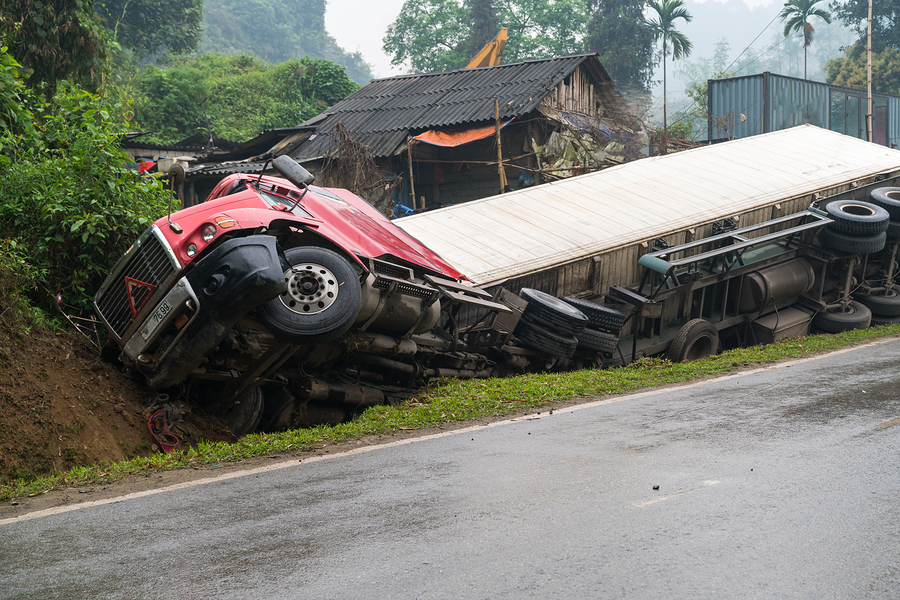Truck Accidents - The Bigger and Heavier The Load, The Greater The Risk
 Michael Babboni
Trucking Accidents
The large, freight hauling trucks of America are a very common sight on our highways, cities, and towns. Without these massive vehicles, we wouldn’t be able to count on buying a TV in our local electronics retailer or even getting some much-needed coffee and breakfast from our favorite fast-food restaurant. Freight hauling trucks literally keep America supplied in everything from food and clothing to the cars we drive on the road ourselves.
Michael Babboni
Trucking Accidents
The large, freight hauling trucks of America are a very common sight on our highways, cities, and towns. Without these massive vehicles, we wouldn’t be able to count on buying a TV in our local electronics retailer or even getting some much-needed coffee and breakfast from our favorite fast-food restaurant. Freight hauling trucks literally keep America supplied in everything from food and clothing to the cars we drive on the road ourselves.That’s one of the reasons why professional truck driving is such a demanding job. So much of America relies on being able to deliver larger, and larger amounts of freight, on time and on schedule, that it puts a lot of pressure on truck drivers and their companies. In some cases, this means that truckers and/or the companies they work for may strive for greater efficiency, and they do this by trying to carry more freight on their trucks.
While this sounds like a good idea, and just working harder and smarter, it is also illegal. And there are a lot of good reasons for that. One of the biggest is that it can lead to an even higher risk of trucking accidents. But how?
Unbalanced Physics
A truck is built with specific limitations, based on the design and materials used in its construction. One of the limitations that a truck has is just how much of a load it is capable of carrying without compromising on its performance. A truck is never going to be able to accelerate and decelerate quickly or turn a corner in a sharp, agile manner. But professional truckers are used to the way a truck handles itself, provided that the truck performs within the expected parameters.
Overloading a truck, however, changes those parameters in ways that a trucker may not be able to predict or compensate for.
Reduced Response
One way that overloading a truck severely compromises performance is in response. A truck carrying more than it should is going to take longer to accelerate than the trucker is used to, but, more worryingly, it is also going to take longer to decelerate.
This means that situations where a trucker sees something ahead and tries to brake, the braking may not be successful. This is especially true if the trucker brakes, expecting the truck to respond and slow down as it normally would, and it takes longer than estimated, resulting in a collision.
Overturning
A truck that is over capacity is not just going to react slower to maneuvers carried out by the driver, it is also going to have its weight and center of mass altered. A turn that previously might have been taken with no issue whatsoever, must now be taken slower, and with a wider turning arc, thanks to the increased load. If a trucker doesn’t account for this, the cargo itself may simply cause the entire vehicle to spill over, sending the cargo all over the road, especially if it’s not in a container.
If you find yourself in such a situation, where you believe the truck accident was caused by a larger than advised load, talk to a St. Pete lawyer with expertise and experience in trucking accidents.
